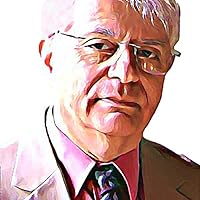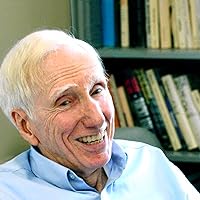Social Cohesion Quotes
Quotes tagged as "social-cohesion"
Showing 1-9 of 9

“Social cohesion is a necessity, and mankind has never yet succeeded in enforcing cohesion by merely rational arguments. Every community is exposed to two opposite dangers: ossification through too much discipline and reverence for tradition, on the one hand; and on the other hand, dissolution, or subjection to foreign conquest, through the growth of individualism and personal experience that makes cooperation impossible”
― A History of Western Philosophy
― A History of Western Philosophy

“In the "game" of life, rules maintain social cohesion, allowing for shared understanding and participation. They build the framework within which we can interact tellingly, and they can procure enjoyment, giving structure to chaos. ("When forgetting the rules of the game")In the "game" of life, rules maintain social cohesion, allowing for shared understanding and participation. They build the framework within which we can interact tellingly, and they can procure enjoyment, giving structure to chaos. ("When forgetting the rules of the game")”
―
―
“From the perspective of inclusive fitness, unfamiliar others are potential free-riders and, out of a concern that they will be exploited by others, people reduce considerably their altruistic attitudes and behavior in a general way in more diverse communities. This loss of trust is a symptom of a breakdown in social cohesion and is surely a forerunner of the sort of ethnic conflict that is always likely to break out if allowed to do so. This is undoubtedly the reason why multicultural nation-states are forever promoting tolerance and ever more punitive sanctions for the expression of ethnic hostility, even going so far to as to discourage the expression of opinion about the reality of ethnic and racial differences. Currently these measures are directed at the host population when they express reservations about the wisdom of mass immigration, but this will surely change as it becomes ever more obvious that it is the presence of competing ethnic groups that is creating the tension and not the expressed reservations of the majority population. The real danger for modern democracies is that in their zeal to promote multicultural societies, they will be forced to resort to the means that have characterized all empires attempting to maintain their hegemony over disparate peoples.”
― The Perils of Diversity: Immigration and Human Nature
― The Perils of Diversity: Immigration and Human Nature

“The ones to fear are those who cannot realize it: the ones who just see the structure and bind themselves to it because they are otherwise afraid. They look at the structure, and they just see no other way. They cannot seek anything beyond it or do not want to. Yet, they will also vehemently deny that they are unable to venture beyond the structure and castigate others they perceive to have that inability so as to make themselves feel superior. They will even delude themselves into assuming that they are free of structural influence and will violently oppose any who say otherwise. They will say that the structures are a pragmatic necessity for social cohesion, but that they, even as willing participants in it, remain capable of acknowledging external terms and associations. They just choose not to—that’s the line they go with. They choose the structure for a lack of any better alternative and will not go
without one. Perhaps they are naïve, in that sense, and it is easy for them to believe that those who seek to negate their structures are either unscrupulous, foolish, or ego-driven.”
― trenches parallax leapfrog
without one. Perhaps they are naïve, in that sense, and it is easy for them to believe that those who seek to negate their structures are either unscrupulous, foolish, or ego-driven.”
― trenches parallax leapfrog

“Serendipitous connections become less likely as increased communication narrows our tastes and interests. Knowing and caring more and more about less and less. This tendency may increase productivity in a narrow sense while decreasing social cohesion.”
― Bowling Alone: The Collapse and Revival of American Community
― Bowling Alone: The Collapse and Revival of American Community

“We must be mad, literally mad, as a nation to be permitting the annual inflow of some 50,000 dependents, who are for the most part the material of the future growth of the immigrant-descended population. It is like watching a nation busily engaged in heaping up its own funeral pyre.”
―
―

“Unlike most models of interpersonal networks, the one presented here is not meant primarily for application to small, face-to-face groups or to groups in confined institutional or organizational settings. Rather, it is meant for linkage of such small-scale levels with one another and with larger, more amorphous ones. This is why emphasis here has been placed more on weak ties than on strong. Weak ties are more likely to link members of different small groups than are strong ones, which tend to be concentrated within particular groups.
[...]
The major implication intended by this paper is that the personal experience of individuals is closely bound up with larger-scale aspects of social structure, well beyond the purview or control of particular individuals.
Linkage of micro and macro levels is thus no luxury but of central importance to the development of sociological theory. Such linkage generates paradoxes: weak ties, often denounced as generative of alienation, are here seen as indispensable to individuals' opportunities and to their integration into communities; strong ties, breeding local cohesion, lead to overall fragmentation. Paradoxes are a welcome antidote to theories which explain everything all too neatly.”
― The Strength of Weak Ties
[...]
The major implication intended by this paper is that the personal experience of individuals is closely bound up with larger-scale aspects of social structure, well beyond the purview or control of particular individuals.
Linkage of micro and macro levels is thus no luxury but of central importance to the development of sociological theory. Such linkage generates paradoxes: weak ties, often denounced as generative of alienation, are here seen as indispensable to individuals' opportunities and to their integration into communities; strong ties, breeding local cohesion, lead to overall fragmentation. Paradoxes are a welcome antidote to theories which explain everything all too neatly.”
― The Strength of Weak Ties

“If personal identity resides in the telling, then so does social identity. Families, nations, religions (but also corporations, universities, departments of sociology) know who they are by the stories they tell. The modern discipline of history is closely related to the emergence of the nation-state.”
― Religion in Human Evolution: From the Paleolithic to the Axial Age
― Religion in Human Evolution: From the Paleolithic to the Axial Age
All Quotes
|
My Quotes
|
Add A Quote
Browse By Tag
- Love Quotes 97.5k
- Life Quotes 76k
- Inspirational Quotes 73k
- Humor Quotes 43.5k
- Philosophy Quotes 29.5k
- Inspirational Quotes Quotes 27k
- God Quotes 26k
- Truth Quotes 23.5k
- Wisdom Quotes 23.5k
- Romance Quotes 23k
- Poetry Quotes 22k
- Death Quotes 20k
- Happiness Quotes 18.5k
- Life Lessons Quotes 18.5k
- Hope Quotes 18k
- Faith Quotes 18k
- Quotes Quotes 16.5k
- Inspiration Quotes 16.5k
- Spirituality Quotes 15k
- Religion Quotes 15k
- Motivational Quotes 15k
- Writing Quotes 15k
- Relationships Quotes 14.5k
- Life Quotes Quotes 14k
- Love Quotes Quotes 14k
- Success Quotes 13.5k
- Time Quotes 12.5k
- Motivation Quotes 12k
- Science Quotes 11.5k
- Motivational Quotes Quotes 11.5k


